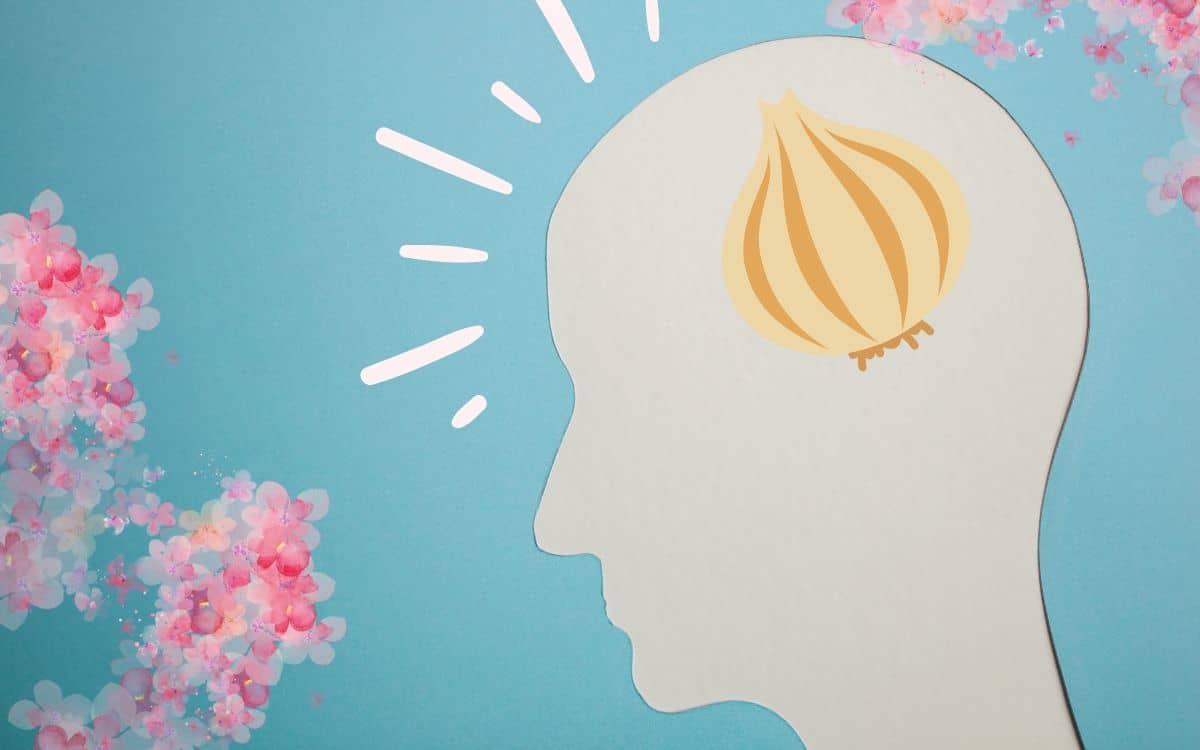Onions are a staple ingredient in many cuisines around the world, known for their distinct flavor and versatility in various culinary creations. From sautéed onions in savory dishes to caramelized onions in sweet treats, these pungent bulbs are a beloved addition to countless recipes. But did you know that onions might also have an impact on your mood and emotions?

In this blog post, we’ll explore the potential connection between onions and mental health. We’ll delve into how they might affect mood and emotions. So, let’s peel back the layers and explore the fascinating relationship between onions and mental health.
Onions and Mood
Onions may have an impact on mood, and one potential mechanism is through their influence on serotonin levels. Serotonin is a neurotransmitter that plays a key role in regulating mood, appetite, and sleep, among other physiological functions. Onions contain certain compounds, such as quercetin and sulfur compounds, that are believed to affect serotonin levels in the brain.
The potential mechanisms through which onions may affect mood and emotional well-being could also be linked to their anti-inflammatory and antioxidant properties. Chronic inflammation and oxidative stress have been implicated in the development of mood disorders, and onions, with their anti-inflammatory and antioxidant properties, may help reduce inflammation and oxidative stress in the brain, thereby supporting better mood regulation.
Onions and Emotions
Onions may also play a role in influencing emotions and emotional well-being. While the direct link between onions and emotions may not be well-established, there are several factors that suggest onions may have an impact on how we feel.
Stress management is an important aspect of emotional well-being, and onions may have properties that can help with stress reduction. Onions contain certain compounds, such as sulfur compounds and flavonoids, that have been shown to have anti-stress and anti-anxiety effects. For example, allyl sulfide, a compound found in onions, has been shown to exhibit anti-stress effects in animal studies.
Onions may also promote relaxation, which can have a positive impact on emotions. Some compounds found in onions, such as quercetin, have been shown to have muscle-relaxing properties. Relaxation techniques and practices are known to help reduce stress and promote emotional well-being, and incorporating onions into meals may complement these efforts.

What Are the Potential Side Effects or Interactions of Consuming Onions in Relation to Mental Health?
Onions are generally considered safe for most people when consumed as part of a balanced diet. However, there are a few potential side effects or interactions that individuals should be aware of in relation to mental health:
Gastrointestinal Discomfort
Some individuals may experience digestive discomfort, such as bloating, gas, or heartburn, after consuming onions. This can be uncomfortable and may impact overall well-being, including mood and emotions.
Allergic Reactions
While rare, some individuals may be allergic to onions and may experience symptoms such as itching, swelling, hives, or difficulty breathing. Allergic reactions to onions can be serious and may require immediate medical attention.
Interaction with Medications
Onions may interact with certain medications commonly used for mental health conditions, such as blood thinners or antiplatelet drugs, due to their potential blood-thinning effects. This may increase the risk of bleeding or affect the efficacy of the medication. It’s important to consult with a healthcare professional if you are taking any medications and considering incorporating onions into your diet.
Breath and Body Odor
Onions are known for their pungent odor, which can be evident in breath and body odor after consumption. This may impact social interactions and self-confidence, which can indirectly affect mood and emotions.

Is It Possible to Rely Solely on Onions or Other Foods for Managing Mental Health Concerns?
Managing mental health concerns typically requires a holistic approach that includes various strategies, such as therapy, medication (if prescribed by a healthcare professional), regular exercise, sufficient sleep, stress management techniques, and a balanced diet. While certain foods, including onions, may have potential mood-boosting properties, it is not recommended to rely solely on onions or any other single food for managing mental health concerns.
Onions, like other foods, are part of a healthy and balanced diet and can contribute to overall well-being. They contain various vitamins, minerals, and phytonutrients that can have potential health benefits. However, mental health is complex, and it is influenced by multiple factors, including genetics, environment, lifestyle, and individual circumstances. Relying solely on onions or any other food for managing mental health concerns may not be sufficient.
Can Onions Interact with Medications Commonly Used for Mental Health Conditions?
Yes, onions may interact with certain medications commonly used for mental health conditions due to their potential effects on blood clotting. Onions contain sulfur compounds, such as allyl sulfides, which have blood-thinning properties and can inhibit platelet aggregation, similar to some medications used for blood thinning, such as aspirin or warfarin.
If you are taking medications for mental health conditions, such as antidepressants, antipsychotics, mood stabilizers, or other medications that affect blood clotting, it’s important to be cautious with consuming large amounts of onions or onion supplements. The blood-thinning effects of onions may increase the risk of bleeding or affect the efficacy of the medication.

Conclusion
While onions are commonly used in cooking for their flavor and versatility, they may also have an impact on mood and emotions due to their nutritional properties and potential health benefits. The anti-inflammatory and antioxidant properties of onions, along with their potential effects on serotonin levels and gut health, suggest that they could play a role in supporting mental health.
Incorporating onions into a balanced diet along with other nutrient-rich foods may be a simple and delicious way to potentially boost mental well-being. However, it’s important to remember that nutrition is just one aspect of mental health, and a holistic approach that includes other factors such as exercise, sleep, stress management, and professional medical care should be considered.








